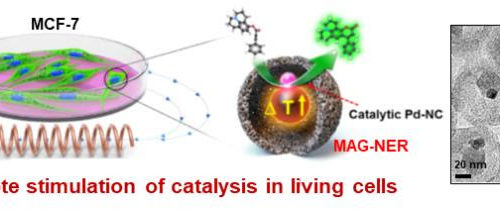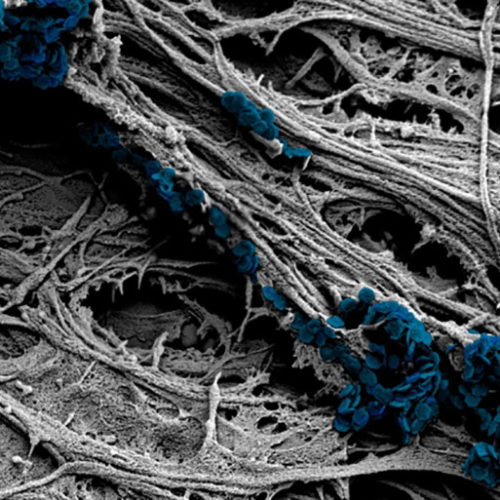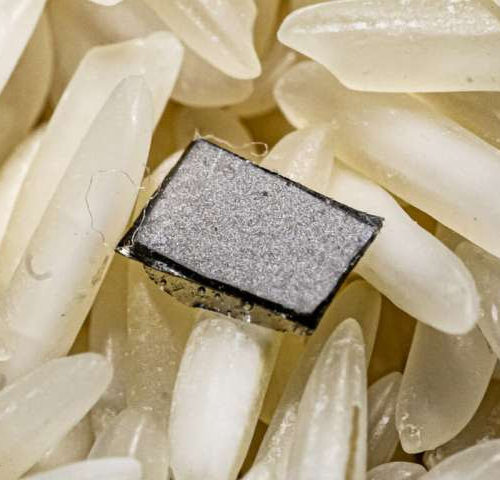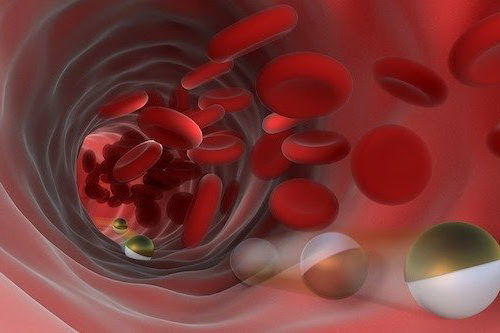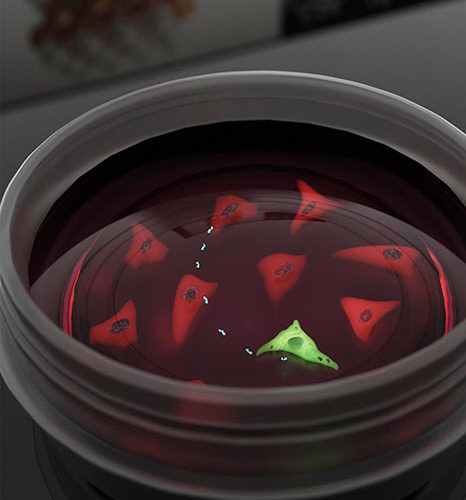Silky material uses magnetic particles to regrow bone By Ben Coxworth August 10, 2020 It was just a couple of months ago that we heard about an implantable material that electrically stimulates bone cells, causing them to reproduce. Now, scientists have created a similar substance that utilizes magnetism. There are already a number of experimental...
Tag: <span>Magnetic</span>
Nanocatalysts that remotely control chemical reactions inside living cells
POHANG UNIVERSITY OF SCIENCE & TECHNOLOGY (POSTECH) DIAGRAM OF REMOTELY CONTROLLED CATALYSIS IN LIVING CELLS USING MAG-NER AND THE ELECTRON MICROSCOPE IMAGE OF MAG-NERview more CREDIT: IN SU LEE (POSTECH) The enzymes responsible for catalytic reactions in our body’s biological reactions are difficult to use for diagnosis or treatment as they react only to certain...
Mechanically Stimulating Neurons Using Magnetic Nanodiscs
Electrical stimulation and chemical pharmaceuticals are the two ways that doctors and scientists routinely use to manipulate neural cells. Chemicals have their side effects, are slow to take effect, and are usually systemically delivered, while electrical stimulation usually requires invasive wires, is limited in its resolution, and is nearly impossible to administer within certain parts...
How the brain controls our speech
by Goethe University Frankfurt am Main Speaking requires both sides of the brain. Each hemisphere takes over a part of the complex task of forming sounds, modulating the voice and monitoring what has been said. However, the distribution of tasks is different than has been thought up to now, as an interdisciplinary team of neuroscientists...
Rice team makes tiny, magnetically powered neural stimulator
by Rice University A sample of Rice University’s ‘magnetoelectric’ film atop a bed of uncooked rice. Rice neuroengineers created the bi-layered film to power implantable neural stimulators that are approximately the size of a grain of rice. The film converts energy from a magnetic field directly into an electrical voltage, eliminating the need for a...
Microrobots Roll Along Blood Vessel Walls to Deliver Drugs
Precise delivery of therapeutic drugs into diseased tissue remains a challenge in a variety of cases. Tumors can be hard to seed with chemo agents, particularly when the blood flow is not favorable for delivery. Now, researchers at the Max Planck Institute for Intelligent Systems in Germany have developed microscopic drug delivery devices that can...
Nanopropellers to Deliver Gene Therapy Into Cells
Researchers at the Max Planck Institute for Intelligent Systems in Germany have developed powerful nanopropellers that can be steered into the interior of cells to deliver gene therapy. The magnets that these devices, each about the size of a bacteria, are made of were created for the first time for this very task. Most powerful...
“Corkscrew” microrobots skewer cancer cells for targeted drug delivery
By Michael Irving In the not too distant future, tiny robots could be delivering drugs inside our bodies, but there are still a few hurdles to clear before we realize that scenario. Now researchers have developed corkscrew microrobots that drill into cancer and hold fast while they drop off the drug payload, preventing them being...
Magnetoferritin: a new effective marker for tumor diagnosis and treatment?
A novel magnetoferritin-based method allows doctors to more accurately diagnose malignant cells, providing additional opportunities for cancer treatments. One major problem in diagnostic radiology today is the lack of accuracy due to insufficient contrast between the cells of interest and the background environment. Before taking MRIs, small quantities of ‘contrast agents’ are typically added to...
Neuroscientists use magnetic stimulation to amplify PTSD therapy
Dr. Michael Motes (left) and Dr. John Hart Jr., along with other researchers at UT Dallas, discovered that repetitive transcranial magnetic stimulation boosted the effectiveness of cognitive processing therapy for post-traumatic stress disorder. Researchers from The University of Texas at Dallas have found that a standard therapy for post-traumatic stress disorder (PTSD) is more effective...


